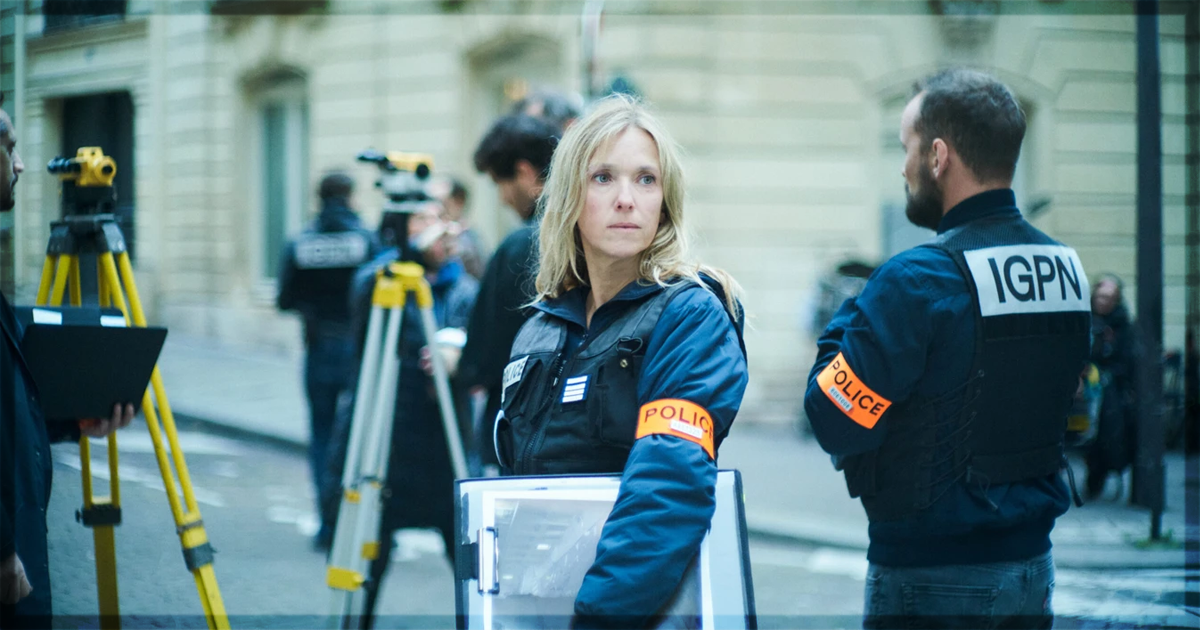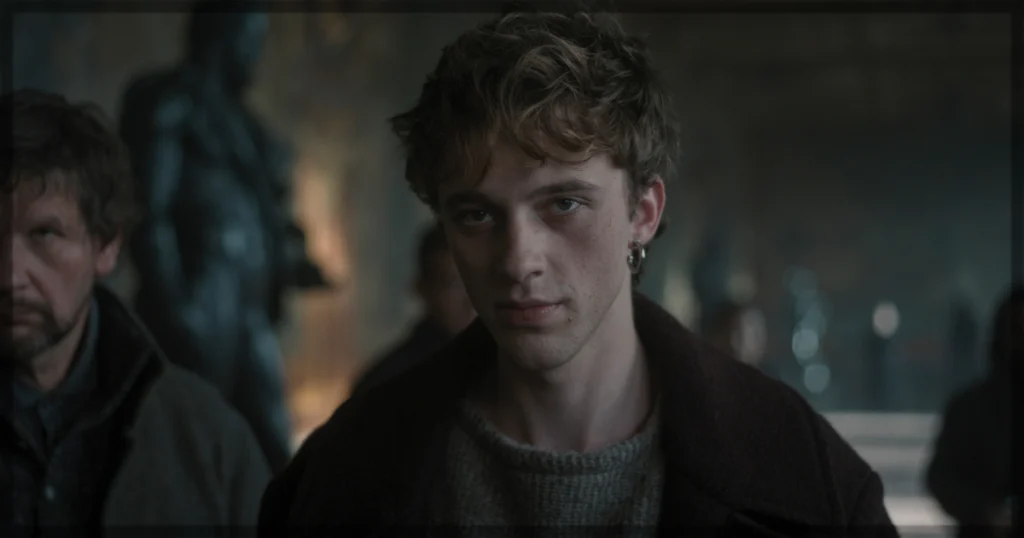The ripped-from-the-headlines Case 137 (Dossier 137) combines two genres everybody loves. The first is the detailed bureaucracy of justice and how much easier it is to find objective truth since we all started carrying recording devices (our mobile phones) around at all times. Think Anatomy of a Fall and Saint Omer. The other genre is an examination of the state of the nation, with big concern about how things have gone so badly wrong, ideally ending with a major actor delivering a monologue to camera about how they have done their best but their best is not good enough. Think The Divide or The Quiet Son. All of these examples are French, made within the last three years and almost all deeply affected by the gilet jaune (yellow vest, aka hi-vis jacket) protests of 2018. Working-class people, the kind who wear those jackets to work, protested rising prices and pension changes made by the French government and were met with incredible state violence. Well, incredible if you’re white. France is still reeling from the lessons it learned about itself then, and Case 137 goes the long way around the barn to depict the nation’s permanent balancing act between order and democracy.
Order means the world exactly as it is. In America we say up front that the legal and justice systems are there to enforce the laws and maintain order. Crimes against property are worse than paying your workers starvation wages or cheating them on their pension. Calling an armed cop a pig or the filth is an insult to the state, as if the feelings of the big man with the gun are more important than the free speech rights of anybody else. In France, the financial pressures in 2018 were the final straw for a lot of unhappy people, and thanks to their culture of class solidarity and collective actions the protests exploded into the zeitgeist. Working-class people who had never necessarily been to Paris used the marches both as a chance for a day out but also to express their feelings about the powers over them in physical proximity to that power. This was seen by the police and the government – and it’s emphasized so deliberately in the script by director Dominik Moll and Gilles Marchand that it’s almost certainly true – as an act of war.
In the face of this threat to the French republic, cops from across the country were called in, as were the specialist anti-terror squads. They were given flashbang guns (which shoot heavy projectiles, which are not bullets, like they are bullets) and sent to the streets to take aim at protestors like they were playing video games. In the specific case this movie is depicting, a cop named Stéphanie (Léa Drucker) who works for the French equivalent of an Internal Affairs department must, as part of her ordinary workload, investigate how a young nurse’s aide named Guillaume (Côme Perronet) ended up with permanent brain damage from his skull being fractured in five places.
Stéphanie is curious and tenacious, diligent in her policework and very good at reading people. She is the single mother of a son in his early teens, Victor (Solàn Machado-Graner), who reads before bedtime and doesn’t whine when asked to help with the chores. She sends the needed emails and explores tons of footage with her team, most notably Benoit (Jonathan Turnbull). Eventually they identify a group of five plainclothes officers of the law who were in the area around the time Guillaume was shot. But nobody likes the police, and Stéphanie has a very hard time accepting that. She cannot accept it even as she listens to the evasions, minimisations and lies of the police officers who were roaming the streets in black balaclavas that night. She cannot accept it even when a witness, a maid at a nearby hotel (Guslagie Malanda, who seems to be building a career holding France to account) asks if any policemen have ever been fired for beating up young black and Arab kids. And when the final plot twist takes effect, she cannot accept it then, either.
The realism of the attitudes on display here is by far the best thing about this movie. Its style – with rumpled clothes, location shooting and unintrusive sound – is unshowy in order to highlight that realism. The investigative team value their good police colleagues and think it’s an act of honour to root out the bad ones. The policemen on the street that night were working under unbelievable pressure and being told these protestors were rioters and terrorists, not excited country kids out of their element. The (clearly signposted) big plot twist is also wholly believable, except that here the realism slips. The defensiveness towards the end is a big mistake. There are several little ones, like when Stéphanie and Benoit gawp around the hotel suite costing €2000 a night ($2200 at today’s change rates) or when Victor’s father (Stanislas Merhar), a narcotics cop, continually snipes at his ex-wife for working in internal affairs. But those are minor compared to the ending’s defensiveness, which undermines Case 137’s entire premise.
France has worked hard in recent years to move past those scenes from December 2018, but that certainly doesn’t mean justice has been done. Ms. Drucker is in almost every scene and her straightforward work here makes it very clear Stéphanie believes that she always does the right thing. But a lot of people believe that about themselves, and nobody likes the police. More importantly, nobody bothers to ask if Guillaume would have deserved his same fate if he had been as bad the cops claim. It’s left to his mother (a very good Sandra Colombo) to express shock that the main legal issue is that Guillaume caused the government the expense of paying for his sick leave, not that a sparky young man now has a permanent disability and an altered personality. Did he deserve that? Does anybody?
A better movie would have started where this one ended, to delve into the consequences of the defensiveness on display. What does it do to people when a society is no longer interested in the collective but instead in isolating everyone, at gunpoint? It is possible, though it is very difficult, to maintain order without resorting to violence. But speaking truth the power is not a popular genre, and Case 137 is more interested in maintaining the current, imperfect forms.
Case 137 (Dossier 137) recently screened at the Cannes Film Festival.
Learn more about the film at the Cannes site for the title.


